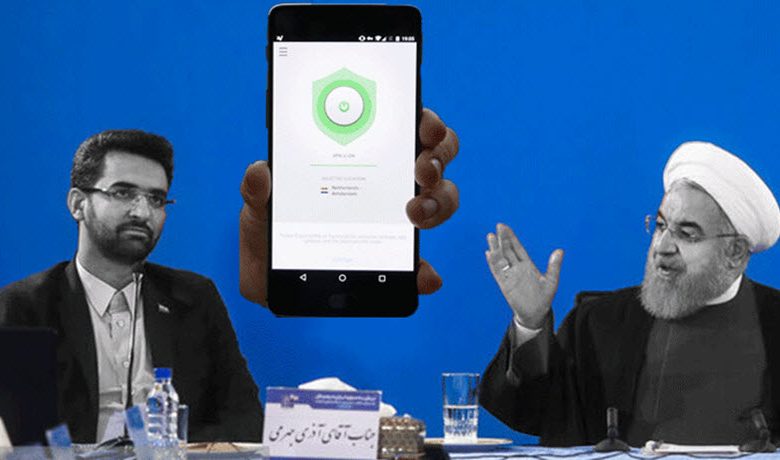Iran Regime Admits Failing to Censor Internet

By Mahmoud Hakamian
The Iranian Regime has unsuccessfully tried to censor internet use in Iran, Iranian President Hassan Rouhani admitted on Monday, without condemning the practice that is so clearly a violation of the Iranian people’s rights.
He said: “Well, we were unsuccessful in some of our efforts [to filter the internet] in recent years. We thought it is under our control. We thought it would be filtered if we just ordered so…. What should we do with [Virtual private networks (VPNs)]?”
VPNs allow internet users to circumvent censorship and evade surveillance of their activities by moving their IP address to a different country, so they are very popular in Iran where the internet is heavily restricted and many foreign media and social networks sites are blocked altogether.
Rouhani was not the only Iranian official who chose to speak out recently about the Iranian Regime’s attempts to cripple the free flow of information via the internet.
On January 17, Ahmad Khatami, the representative for the board of directors of Assembly of Experts, said that during their last session every member had “agreed that the damages inflicted by the cyberspace were serious”, while the Assembly of Experts issued a statement advising that the Regime should be doing all they can to crush the Iranian people’s resistance, whom the mullahs refer to as the “enemy”.
The statement read: “The Ministry of Communications, the High Council of Cyberspace, and all related institutions should actively engage in establishing order in the cyberspace and confront the unethical issues and psychological warfare by the enemy, and take serious steps in monitoring and confronting the opposition and unethical networks.”
This statement was paraphrased by Ali Movahedi Kermani, the regime’s Friday Prayer Leader in Tehran, on January 18, when he told a crowd that the Regime should confront the “enemy” and strengthen domestic information networks. This seems like a clear reference to the Regime-created copies of the banned websites and apps, which actually exist to allow the Regime additional access to the online activity, including private messages, of the Iranian people. Some of these have been removed by the relevant domain or app store, but far too many remain active, endangering the Iranian people.
It is obvious that the Regime officials are reading from the same playbook and that these statements are merely an attempt to distract from the dangers posed by the real enemy of the Iranian people: The Regime. The Regime’s admittance to their failure to control cyberspace shows that the Regime is acknowledging, at least in some way, that they have lost the war on this, but sadly, it is far from the last time that the Regime will act to censor and spy on the Iranian people.

